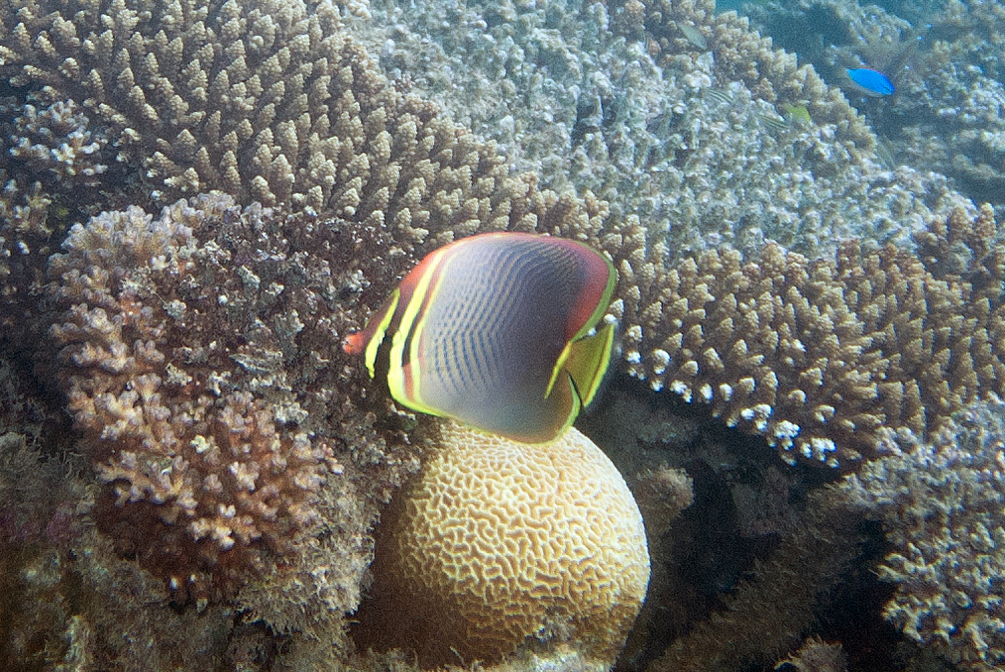We're open daily this holiday! View holiday hours
Science News
A Whiff of Something Good
August 22, 2014
by Molly Michelson

Scents trigger our memories and identify if food has gone bad, but what if we could also sniff out a good home? A new study by Georgia Tech researchers says that juvenile corals and fish can do just that, sensing healthy habitats where they can grow and thrive.
Coral reefs are declining around the world, caused in part by overfishing. As fish that eat seaweed disappear from the reefs, the seaweed takes over, often choking coral growth and damaging the health of the reef ecosystem.
To understand the effects of seaweed-choked reefs, the Georgia Tech team examined three areas in Fiji—both fished and protected areas—and replicated the scents of the protected, coral-dominated reefs and the overfished, seaweed-dominated reefs in the lab. They found that young fish have an overwhelming preference for water from healthy reefs. The researchers put water from healthy and degraded habitats into a flume that allowed fish to choose to swim in one stream of water or the other. Regardless of species, all of the fish tested demonstrated a greater preference (eight times greater!) for water from healthy areas.
The researchers then tested coral larvae from three different species and found that they preferred water from the healthy habitat five-to-one over water from the degraded habitat. In fact, chemical cues from the seaweed alone decreased coral larval attraction by 81 percent.
And when it comes time for the young coral to settle, it seems they only have to follow their, er, well not nose, but sense. “Not only are coral smelling good areas versus bad areas, but they’re nuanced about it,” says study co-author Mark Hay. “They’re making careful decisions and can say, ‘settle or don’t settle.’”
The team hopes these findings will influence how protected areas are managed and how damaged reefs are restored.
A minimum amount of intervention at the right time and the right place could jump start the recovery of overfished reefs, Hay says. That could bring fish back to the area so they settle and eat the seaweed around the corals. The corals would then get bigger because the seaweed is not overgrown. Bigger corals would then be more attractive to more fish.
A little whiff of healthy habitat can go a long way.
Image: Paul Asman and Jill Lenoble/Flicr